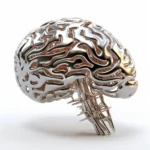Physics and computing are two fields that require a high level of focus and attention to detail. For individuals with Attention Deficit Hyperactivity Disorder (ADHD), these fields may present unique challenges. ADHD is a neurodevelopmental disorder that affects an individual’s ability to sustain attention, control impulses, and regulate behaviour.

In the context of physics, individuals with ADHD may struggle with tasks that require sustained attention, such as problem-solving and calculations. However, research has shown that individuals with ADHD may have unique strengths in creativity and spontaneity, which can be valuable in physics. Additionally, accommodations such as breaking tasks into smaller parts and providing extra time for assignments can help individuals with ADHD succeed in physics courses.
Similarly, computing requires sustained attention and the ability to focus for long periods of time. Individuals with ADHD may struggle with these tasks, but can benefit from accommodations such as breaking tasks into smaller parts and using tools such as timers and reminders. Additionally, research has shown that individuals with ADHD may excel in fields that require quick thinking and adaptability, which can be valuable in computing.
Key Takeaways
- ADHD can present unique challenges in fields such as physics and computing, which require sustained attention and focus.
- Individuals with ADHD may have unique strengths in creativity and quick thinking, which can be valuable in these fields.
- Accommodations such as breaking tasks into smaller parts and providing extra time for assignments can help individuals with ADHD succeed in physics and computing courses.
Understanding ADHD

Attention-deficit hyperactivity disorder (ADHD) is a neurodevelopmental disorder that affects both children and adults. People with ADHD may experience difficulties with attention, hyperactivity, and impulsivity. ADHD is a complex condition that can impact individuals in different ways, and it is important to understand the experiences of those with ADHD.
For people with ADHD, organization and control can be challenging. They may struggle to prioritize tasks, manage their time effectively, and keep track of important details. Strategies such as creating routines, using checklists, and breaking down tasks into smaller steps can be helpful for managing these difficulties.
Motivation can also be a challenge for individuals with ADHD. They may have difficulty maintaining focus on tasks that do not interest them, and may struggle to complete tasks that require sustained effort. Inclusion and neurodiversity are important considerations for individuals with ADHD, as they may benefit from accommodations such as extended time on tests or assignments.
Communication can also be impacted by ADHD. Individuals with ADHD may struggle to express their views and experiences clearly, and may have difficulty understanding social cues. It is important to recognize that learner variation is a natural part of the classroom environment, and that students with ADHD may require different approaches to learning.
Behavioural therapy can be an effective treatment option for individuals with ADHD. This type of therapy focuses on developing skills such as self-regulation and impulse control, and can help individuals with ADHD to manage their symptoms effectively. It is important to recognize that ADHD is not a result of poor parenting or a lack of willpower, and that individuals with ADHD may face stigma and discrimination due to their condition.
Research has shown that ADHD has a strong heritability component, and that other factors such as migraine and overweight may be associated with ADHD. Executive functioning, which includes skills such as planning, problem-solving, and working memory, is often impacted by ADHD. Autism spectrum disorder (ASD) can also co-occur with ADHD, and it is important to consider both conditions when developing strategies for individuals with these diagnoses.
In summary, understanding the experiences and challenges faced by individuals with ADHD is an important step towards creating inclusive and supportive environments. By recognizing the impact of ADHD on executive functioning, communication, and behaviour, educators can develop effective strategies for supporting students with ADHD.
Physics and ADHD

Attention-deficit/hyperactivity disorder (ADHD) is a neurodevelopmental disorder that affects learning, focus, and behaviour. Students with ADHD may face challenges in learning physics, a subject that requires sustained attention, problem-solving, and critical thinking. However, there are strategies that can be employed to support students with ADHD in physics education.
Challenges and Strategies
Students with ADHD may face challenges in physics education, including easily becoming distracted during class, getting bogged down with the details of a problem, getting bored or distracted when class does not interest or challenge them, and becoming overwhelmed by processing physics content via multiple means at the same time. However, there are strategies that can be employed to support these students.
One approach is to provide a structured learning environment that includes clear expectations, routines, and feedback. This can help students with ADHD stay focused and on task. In addition, instructors can provide visual aids, such as diagrams and graphs, to help students with ADHD better understand physics concepts. Breaking down complex problems into smaller, more manageable parts can also help students with ADHD stay engaged.
Another strategy is to encourage collaboration and communication among students. Group projects and discussions can help students with ADHD stay engaged and focused while also promoting social interaction and teamwork.
Inclusive Physics Education
Inclusive physics education involves creating a learning environment that is welcoming and supportive of all students, including those with disabilities. Instructors can employ a variety of approaches to create an inclusive learning environment, such as providing multiple means of representation, expression, and engagement.
For students with ADHD, providing multiple means of representation can involve presenting information in different formats, such as visual aids, audio recordings, and written text. Providing multiple means of expression can involve allowing students to demonstrate their understanding of physics concepts in different ways, such as through written assignments, oral presentations, or creative projects. Providing multiple means of engagement can involve offering a variety of activities and assignments that cater to different learning styles and interests.
In conclusion, physics education can be challenging for students with ADHD, but there are strategies that can be employed to support these students. Instructors can create a structured learning environment, provide visual aids, encourage collaboration and communication, and promote inclusive physics education.
Computing and ADHD

People with ADHD commonly struggle with time management, organization, completing tasks, and failure to pay attention to details. This can make it difficult to stay on task in a school or work environment. However, apps and computer programs can help people with ADHD stay organized, reach goals, and even fight the urge to succumb to distraction.
Machine Learning and ADHD
Recent advancements in machine learning and artificial intelligence have shown promise in assisting individuals with ADHD. For example, a study published in Frontiers in Physiology found that using machine learning algorithms to analyze functional connectivity in the brain could detect ADHD with near-perfect accuracy. This could lead to earlier diagnosis and more effective treatment for individuals with ADHD.
ADHD Resources in Computing
There are also many resources available online for individuals with ADHD in the computing field. YouTube channels such as “How to ADHD” offer advice and tips for managing ADHD symptoms in a work or school environment. Additionally, there are many online communities and forums where individuals with ADHD can connect and share their experiences.
Overall, computing and technology can be a valuable tool for individuals with ADHD. With the help of machine learning and artificial intelligence, as well as online resources, individuals with ADHD can better manage their symptoms and succeed in the computing field.
Frequently Asked Questions

Can people with ADHD succeed in a career in software development?
Yes, people with ADHD can succeed in a career in software development. While ADHD can present challenges in areas such as focus and organization, it can also bring unique strengths such as creativity, problem-solving skills, and the ability to hyperfocus on tasks of interest. Many successful software developers have ADHD, and there are also resources available to help individuals with ADHD succeed in this field.
How does ADHD affect performance in computer science?
ADHD can affect performance in computer science in a number of ways. For example, individuals with ADHD may struggle with staying focused for long periods of time, which can make it difficult to complete coding projects. They may also have difficulty with organization and time management, which can make it challenging to keep track of multiple projects and deadlines. However, with the right strategies and accommodations, individuals with ADHD can still excel in computer science.
What are some strategies for managing ADHD symptoms while studying physics?
Some strategies for managing ADHD symptoms while studying physics include breaking tasks down into smaller, more manageable steps, using visual aids such as diagrams and flowcharts to help with understanding complex concepts, and creating a structured study schedule with specific times set aside for studying, breaks, and other activities. It can also be helpful to work with a tutor or mentor who has experience working with individuals with ADHD.
Are there any computer science jobs that are particularly well-suited for people with ADHD?
There are many computer science jobs that may be well-suited for people with ADHD, depending on their individual strengths and interests. For example, jobs that involve problem-solving, creativity, and working on a variety of projects may be a good fit. Some examples of computer science jobs that may be well-suited for people with ADHD include software development, user experience design, and data analysis.
What are some common challenges that people with ADHD face in computer science?
Some common challenges that people with ADHD may face in computer science include difficulty with focus and attention, organization and time management, and working memory. These challenges can make it more difficult to complete coding projects, keep track of multiple deadlines, and stay on top of the latest developments in the field. However, with the right strategies and accommodations, individuals with ADHD can still succeed in computer science.
How can individuals with ADHD best prepare for a career in physics or computing?
Individuals with ADHD can best prepare for a career in physics or computing by developing strong study habits, seeking out mentors and tutors who can provide guidance and support, and staying up-to-date with the latest developments in the field. It can also be helpful to explore different areas of physics and computing to find the areas that are most interesting and engaging, as this can help with motivation and focus.



